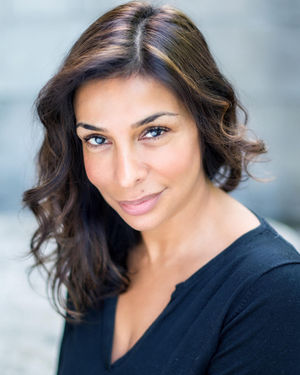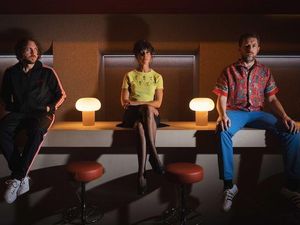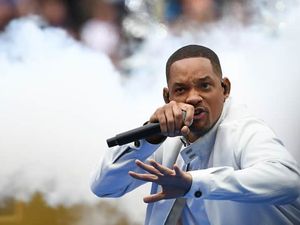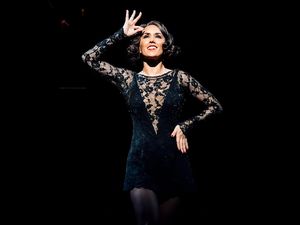Show shines spotlight on South Asian women in the Black Country
They’re the forgotten women of the Black Country. A generation of South Asian women who arrived in the West Midlands 50 years ago have been sidelined and discarded. Until now.

TV stars made famous by Eastenders, Coronation Street and other popular shows are shining the light on the stories of first generation migrants who landed in the Black Country in search of a better life.
Their lives are being celebrated in a new production called Mother Tongues from Farther Lands, a spoken word theatre show full of fascinating, fearless and funny stories from South Asian women. The woman are the backbone of their culture, but are also a group whose voices are too often forgotten.
The TV stars behind Mother Tongues from Farther Lands are Shobu Kapoor (EastEnders, Citizen Khan) and Shobna Gulati (Dinnerlandies, Coronation Street). They’ve joined forces with Sajeela Kershi (comedian, writer and creator of the multi-award-winning, sell-out show Immigrant Diaries) and journalist Shyama Perera.
Shobna recently staged a dance workshop in Wolverhampton ahead of the show’s premiere, at Newhampton Arts Centre on May 23.
It marked a welcome return to the city for the popular actress, who recently starred at Wolverhampton’s Grand Theatre, in Meera Syal’s Anita and Me.
“I love the Midlands. I think the whole place is all about community. The Black Country has its own community because of the way that its towns and villages are inter-linked.
“They all have ties and bonds and there’s a recognition that community is important. And, of course, I love being at The Grand Theatre. The recent show was really nice. The company manager down there, Ray, is an old friend from panto days, so it’s always a lovely place to perform at.
“Anita and Me went down really well and I thoroughly enjoyed it. It’s really nice to have done Anita and then to be back in Wolverhampton doing Mother Tongues so soon afterwards.”
Commissioned by Southbank Centre's Alchemy, the largest UK festival inspired by South Asian culture, Mother Tongues from Farther Lands has been produced in partnership with Black Country Touring and other arts organisations, including Arts Council England.
Taking inspiration from communities across the UK, the production is being staged around the UK.
Through a series of lively regional workshops, Sajeela Kershi introduced professional performers Shobu Kapoor, Shobna Gulati and journalist Shyama Perera with non-performers from Britain’s South Asian communities.
The result is an absorbing collection of moving and entertaining stories that address the gender imbalance experienced in some British South Asian communities. The devised monologues show the strength, tenacity, bravery and humour at the core of these diverse and ‘kick ass’ women.
Kapoor says: “Telling another person's story puts a huge responsibility on my shoulders. I have to honour them, but also try and be as three-dimensional as possible, which means shedding light also on the shadow side of someone's personality. Hopefully, an emotionally rounded portrayal draws in the audience in a way that a totally factual rendering may not, and the people whose stories I'm telling feel that they and their experiences have been truthfully told."
Gulati adds: “It's been a wonderful opportunity to work within a female-led team of diverse artists where we can engage with, recognise and celebrate the contributions of women from our communities from all backgrounds; with a view to share our experiences of our life journeys, finding a collective joy, freedom to release and solace.”
The Mother Tongues from Farther Lands workshop in Wolverhampton was with a group of elder Asian ladies from a Punjabi Sikh and Gujrati Hindu background who meet week at a local community centre. The group was set up in 1994 to help Asian elder women who suffer from depression and experience loneliness, and it has continued to run on a voluntary and independent basis despite funding cuts.
They provided great inspiration for Gulati, whose TV credits also include EastEnders, Casualty, In the Club, Where The Heart Is, Have I Got News for You, Countdown and Loose Women.
“The production is linked in with the South Bank Centre, in London, and it’s basically part of the biggest South Asian Arts Festival that this country’s ever known. For the last few years it’s been in London, but they’ve gradually been working in the regions. So this year we are working Wolverhampton, Doncaster and Oldham.
“Not everybody can come to London, so the project is about taking it out to people where they live. I’m very passionate about the project. It’s not just performance, it’s also about social history.
“In Wolverhampton, we worked with a group of older South Asian women to find out their stories. It fascinated me because it reminded me of something my mum used to tell me: ‘you’re not interested in my story’. But though Mother Tongues, we’re able to say: ‘yes, we are’.”
Ladies from Wolverhampton were able to share their experiences about landing in the Black Country, assimilating into the local community, struggling for equality in a patriarchal society and building friendships with other women in a similar position.
Gulati adds: “It’s about women’s stories. It’s about human stories. I would encourage people to come and watch it.
“It’s similar to my character, Daljit, in Anita and Me. You come from a country that you have called home and you come to another country that you have to make home. And so the project and the stories of the Wolverhampton women are about what they gave up, what they brought and what they managed to hang onto. They were young women when they came and now they are in the autumn of their years.”
Gulati describes it as a privilege to have been able to listen to local women. She found they funny and entertaining, their stories were poignant and resonant.
“It was just an amazing experience to be with them. I recognised parts of me that were formed by my own Punjabi roots. I don’t speak Punjabi fluently but I can understand it. But I could understand the jokes that the women made about blokes – they were all in English. I didn’t need any explanation.”
Gulati started her career by dancing and she did a dance class with the local women, to encourage them to be creative and open up. It worked beautifully and the Wolverhampton group danced to old Bollywood songs and traditional tunes from the Punjab.
“They were great. All of a sudden, these moves were just coming out.
“The common denominator is women. Irrespective of culture or religion, it’s about people’s experiences. And with all the division that there is in society, it was great to do this with them. The stories will resonate with women from all backgrounds, irrespective of religion, race and social class. The show that we’ve created for Newhampton isn’t culturally-specific – it’s about people’s stories.
“In Wolverhampton, all of the ladies stood out. They were from all echelons of society. There was great history and camaraderie among them.”
The show at Newhampton has been put together by Black Country Touring, which has worked in the region for 20 years to create and promote work in disenfranchised communities.
“It was a great experience,” Gulati adds. “Not just for me, but most importantly for the ladies from Wolverhampton.”
Journalist Shyama Perara is also performing, as is the show's creator/writer Sajeela Kershi.
· Mother Tongues from Farther Lands features at Newhampton Arts Centre, Wolverhampton, on May 23, from 7.30pm.





